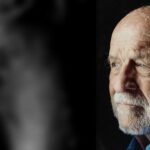A married couple has five children and owns a family ranch for nearly seventy years. When the husband dies first, he wants his wife to be able to continue operating the ranch while also providing for their children’s eventual inheritance. His will uses the phrase “for her natural life” – language that seems to clearly create a life estate.
But what happens when that same will fails to specify who gets the property after the wife’s death? This creates a situation that can turn seemingly straightforward estate planning into years of probate litigation.
The Texas Court of Appeals recently addressed this situation in In the Estate of Jimmy Allen Bird, Deceased, 2025 WL 1774192 (Tex. App.—Amarillo 2025), where the court construed the will to determine what “for her natural life” means.
Facts & Procedural History
Jimmy and his wife Ada were married for almost seventy years and operated a family ranch together. They had five children: Sherry, Dana, Cindy, Jay Cliff, and Lindy. Jay passed away in 2004, leaving three children who were Jimmy and Ada’s grandchildren. Lindy died in 1970 without children.
When Jimmy died in 2020, his will and first codicil were admitted to probate. The will contained language that would spark years of probate litigation. In Paragraph IV, Jimmy gave Ada “all of my property, real, personal and mixed of whatever description and wherever located, for her Natural Life.” Paragraph VII similarly provided that “[a]ll the rest, residue of my estate, I give, devise and bequeath to [Ada] for her natural life.”
The will also granted Ada broad powers as Independent Executrix, including “the power and authority to sell, lease, encumber, partition, and divide or in any other manner dispose of or convert any or all of my estate in such manner as she may see fit.” However, the will contained no provision explaining what would happen to Jimmy’s property after Ada’s death.
Using the authority granted in Jimmy’s will, Ada deeded four tracts of land to her grandson Brandon in May 2021 for $851,000. She also entered into a Family Settlement Agreement with her three daughters, distributing proceeds from the sale. Later, Ada executed a new will giving Brandon the right of first refusal to purchase 5,240 acres of ranch land.
In December 2021, Ada formalized this arrangement by entering into an Option Agreement with Brandon for the same 5,240 acres. Brandon paid a $600,000 non-refundable option fee, with the option exercisable either by December 31, 2036, or within 180 days of Ada’s death.
When Ada died in January 2023, her daughters Sherry and Dana were appointed as Successor Independent Co-Executors of Jimmy’s estate alongside their sister Cindy. Brandon exercised his option and sought to complete the purchase, but Sherry and Dana refused to sign the necessary documents. They argued that Ada had received only a life estate in Jimmy’s property, not fee simple ownership, and therefore lacked authority to enter into the Option Agreement.
The dispute led to extensive litigation as Brandon sought court authorization to complete the land conveyance. More fundamentally, the parties needed the court to determine whether Jimmy’s will granted Ada a life estate or fee simple ownership through proper probate administration procedures.
What Does Texas Law Say About Fee Simple Ownership?
Section 5.001(a) of the Texas Property Code creates a fundamental presumption in favor of fee simple ownership. The statute provides that “[a]n estate in land that is conveyed or devised is a fee simple unless the estate is limited by express words or unless a lesser estate is conveyed or devised by construction or operation of law.”
This presumption reflects centuries of property law evolution favoring the greatest possible estate. The law assumes that the transfer of property is intended to give the recipient the broadest ownership rights possible unless clearly stated otherwise.
The presumption operates as a default rule that can be overcome only by clear language creating a lesser estate. Courts will not find a life estate or other limited interest unless the testator’s intent to create such a restriction is unambiguous. Consider a typical estate planning scenario where a testator wants to provide for their spouse while preserving inheritance for children. The law requires explicit remainder provisions to create a valid life estate.
How Strong Is the Presumption Against Intestacy?
Texas courts apply an equally strong presumption against intestacy when construing wills. As the Texas Supreme Court explained in Shriner’s Hospital for Crippled Children v. Stahl, the making of a will creates a strong presumption that the testator intended to dispose of his entire estate and “did not intend to die intestate as to the whole or any part of his property.”
This presumption serves the fundamental purpose of wills as estate planning instruments. The very act of executing a will demonstrates the testator’s intent to control the disposition of property after death rather than allowing state intestacy laws to determine inheritance.
When courts encounter ambiguous will language, they must balance competing interpretations against this presumption. A construction that would result in partial intestacy faces a higher burden of proof than one that disposes of the entire estate according to the testator’s apparent wishes. The presumption becomes especially strong when the testator executed both a will and codicil, as Jimmy did, demonstrating deliberate estate planning efforts.
Can You Create a Life Estate Without Naming Remaindermen?
The most decisive principle in the Bird case comes from established Texas precedent: there can be no life estate in property without a remainder provision. The court relied on Benson v. Greenville National Exchange Bank, which held that a life estate cannot exist in property, real or personal, without identifying who receives the remainder interest.
This principle makes logical sense from a property law perspective. A life estate is, by definition, a limited interest that terminates upon the life tenant’s death. If no remainder is specified, the property would have no clear owner after the life tenant’s death, creating a legal impossibility.
The Benson case illustrates this principle in action. There, a testator left his sister a life estate in bank stock with specific instructions that it could not be sold or traded. The testator then provided that upon the sister’s death, the stock would pass to her four sons with the same limitation. When questions arose about the sons’ interest, the court found they received the stock in fee simple because they were the named remaindermen in the will.
The absence of any remaindermen in Jimmy’s will created a fundamental problem for the daughters’ life estate theory. Without someone to receive the remainder, the alleged life estate would violate this basic property law principle.
How Did Other Texas Cases Handle Similar Language?
Sherry and Dana argued that various Texas cases supported their position that “for her natural life” language creates a life estate. The court distinguished these precedents, showing how they differed from Jimmy’s will.
In Montgomery v. Browder, the testatrix granted her sister “[a]ll the rest, residue and remainder of my estate, real and personal and wheresoever situated … for her natural life with remainder over at her decease as is hereafter set forth in Paragraph V.” The remainder paragraph specifically named the remaindermen upon the sister’s death. The court noted that unlike Jimmy’s will, the Montgomery testatrix clearly intended to bequeath only a life estate and provided for disposition of the estate after her sister’s death.
Similarly, in Medlin v. Medlin, the testator left his wife “all of my property, real, personal and mixed, wherever located, to have the use and benefit of the same during her natural life, and at her death, all of such property in her hands shall completely vest in my children, share and share alike.” The will further provided detailed instructions for the wife’s management of the property during her lifetime, then explicitly stated that any remaining property would “upon her death, vest in and become the property of my said children and their descendants.”
The court found that Jimmy’s will deviated significantly from these cases because he made no provision for disposition of his property upon Ada’s death. According to the court, the absence of any remaindermen in Jimmy’s will was a strong indicator that he did not intend to give Ada only a life estate.
The court ultimately construed Jimmy’s will as granting Ada a fee simple absolute interest in all his property. The absence of a named remainderman carried the day for Brandon.
The Takeaway
This case shows that the courts often do not create legally impossible estates even when will language appears to support such an interpretation. The case reinforces the necessity of complete dispositive schemes. A testator who wants to create a life estate should clearly identify specific remaindermen and provide for all contingencies. Half-measures that use life estate language without proper remainder provisions may be be construed as fee simple bequests under Texas law. As in this case, there are a number of will construction rules the courts can use to interpret wills. These rules can override seemingly clear will language when that language creates legal impossibilities.
Do you need help with a probate dispute in Houston or the surrounding area? We are Houston litigation attorneys. We help clients navigate even the most complex estates. Call today for a free confidential consultation, 281-219-9090.
Our Houston Probate Litigation Attorneys provide a full range of services to our clients, including helping with cases where wills are ambigious or subject to more than one interpretation. Affordable rates, fixed fees, and payment plans are available. We provide step-by-step instructions, guidance, checklists, and more for completing the guardianship process. We have years of combined experience we can use to support and guide you with guardianship and probate matters. Call us today for a FREE attorney consultation.
Disclaimer
The content of this website is for informational purposes only and should not be construed as legal advice. The information presented may not apply to your situation and should not be acted upon without consulting a qualified probate attorney. We encourage you to seek the advice of a competent attorney with any legal questions you may have.











